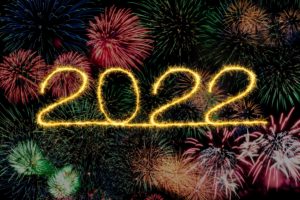- When Aldous Huxley Opened the Doors of Perception
- The Speed Reading vs. Slow Reading Showdown: One Reader’s Adventure
- In Good Taste: Marilyn Stasio on a Lifetime of Book Reviews
- Lost perspective? Try this linguistic trick to reset your view
- Why we remember more by reading – especially print – than from audio or video
- How We Make Sense of Time
- 20 of the Most Influential Historical Fiction Books of All Time
When Aldous Huxley Opened the Doors of Perception
An excerpt from the book American Trip: Set, Setting, and the Psychedelic Experience in the Twentieth Century by Ido Hartogsohn, assistant professor in the Graduate Program in Science, Technology, and Society at Bar Ilan University.
To be shaken out of the ruts of ordinary perception, to be shown for a few timeless hours, the outer and inner world, not as they appear to an animal obsessed with survival or to a human being obsessed with words and notions, but as they are apprehended directly and unconditionally by Mind at Large—this is an experience of inestimable value to everyone and especially to the intellectual.”
These words, from Aldous Huxley’s seminal book “The Doors of Perception,” signaled a crucial turn in the popular perception of hallucinogenic drugs and the direction of hallucinogenic drug research.
And produced the musical group The Doors.
The Speed Reading vs. Slow Reading Showdown: One Reader’s Adventure
If you’ve been hanging around Notes in the Margin for a while, you already know where I stand on the issue of speed reading. But let’s consult someone else. Read about how Stacey Megally framed her look at speed reading vs. slow reading and what she learned from her experiment.
In Good Taste: Marilyn Stasio on a Lifetime of Book Reviews
“The legendary critic talks about how she got her start, how crime fiction got taken seriously, and what she’s reading now.”
For many years Marilyn Stasio was the crime columnist for The New York Times: “A rave or pan from Stasio could float or sink a novel.” She was “unceremoniously fired from her position (a move falsely announced as a retirement) in February.”
But at age 81, she’s still going strong. Read this interview “about how reviewing has changed, when to find beauty in the ugly, and why Agatha Christie is still the greatest.”
Lost perspective? Try this linguistic trick to reset your view
Social psychologist Ariana Orvell describes distanced self-talk, the “process of reflecting on one’s self using parts of speech that are typically used to refer to other people – ie, second- or third-person pronouns, or even one’s own name.”
In particular:
When using the second-person pronoun ‘you’ to reflect on ourselves, we can move beyond our default, egocentric perspective, and consider our thoughts and feelings from the stance of a more objective observer. This distanced self-perspective then opens up new ways of thinking, which can make a difference for our feelings and behaviour in a variety of emotional situations.
Why we remember more by reading – especially print – than from audio or video
Naomi S. Baron, Emerita Professor of Linguistics at American University. studies how electronic communication compares to traditional print in terms of learning: “Is comprehension the same whether a person reads a text onscreen or on paper? And are listening and viewing content as effective as reading the written word when covering the same material?”
In this excerpt from her book How We Read Now, published in March 2021, she discusses why the answers to both of those questions are often “no.”
How We Make Sense of Time
“January 2022 arrives as our methods of keeping time feel like they are breaking. Calendar pages turn, yet time feels lost. In this year of all years, what does it mean for a year to be new?”
But this year of all years, what does it mean for a year to be new? How do we measure our lives? The past year began with the promise of mass vaccination and the hope that life as we had known it would return. The year is ending with unmet expectations — Omicron’s spread, people lighting candles for their third Covid birthday cakes, and meager jokes that 2022 could really be “2020, two.” How do we make sense of time when calendar pages turn, and yet time feels lost?
20 of the Most Influential Historical Fiction Books of All Time
I’ve decided that I need to make an effort to read more historical fiction. I looked to this list and was encouraged to discover that I’ve already read several of the books named here. And I also got some suggestions for more reading.
© 2022 by Mary Daniels Brown


